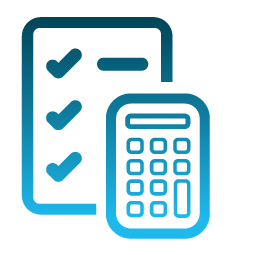Planning a move? You’re not alone. According to Zillow, June is the most popular month to move, with many families and individuals packing up during summer to take advantage of school breaks and warmer weather. But before you grab the packing tape, remember moving can seriously impact your finances. The average local move costs about $1,250, while a long-distance one can climb to $5,000 or more (Forbes). To help you stay in control of your budget (and your sanity), our partners at GreenPath Financial Wellness have provided the five money mistakes to avoid when moving.
#1 Underestimating the Total Cost
It’s easy to focus only on the cost of a moving truck or professional movers. But think about the extras: packing supplies, utility deposits, cleaning fees, gas, meals on the go—even hotel stays. It all adds up.
Tip: Build a moving budget before you do anything else and include a buffer for unexpected expenses. Your future self will thank you.
#2 Not Gathering Multiple Quotes
If you're hiring movers, don’t settle for the first quote. Prices vary depending on timing, distance, and services included.
Tip: Get at least three estimates and ask about discounts—many companies offer deals for students, military, or off-peak days.

#3 Forgetting to Cancel or Transfer Services
Overlapping services like internet, cable, or utilities can lead to double payments. And forgetting to cancel that gym membership across town? Yikes!
Tip: Make a checklist of every service tied to your current address and schedule cancellations or transfers at least two weeks before your move.
#4 Skipping the Decluttering Process
The more stuff you move, the more it costs—not to mention the extra time and energy it takes to unpack boxes of things you don’t use.
Tip: Haven’t used it in the past year? Donate it, sell it, or toss it. You'll save on supplies, labor, and start fresh with less clutter.

#5 Not Accounting for Post-Move Expenses
It’s tempting to think the spending stops once the moving truck drives off—but think again. You’ll likely need new furniture, cleaning supplies, or a restock of your fridge and pantry.
Tip: Set aside part of your budget for post-move purchases. Even a few hundred dollars can help you avoid debt as you settle in.
Moving doesn’t have to wreck your wallet. With a little planning and a solid budget, you can avoid the most common money pitfalls—and keep your financial wellness intact.
Category: Home Ownership



